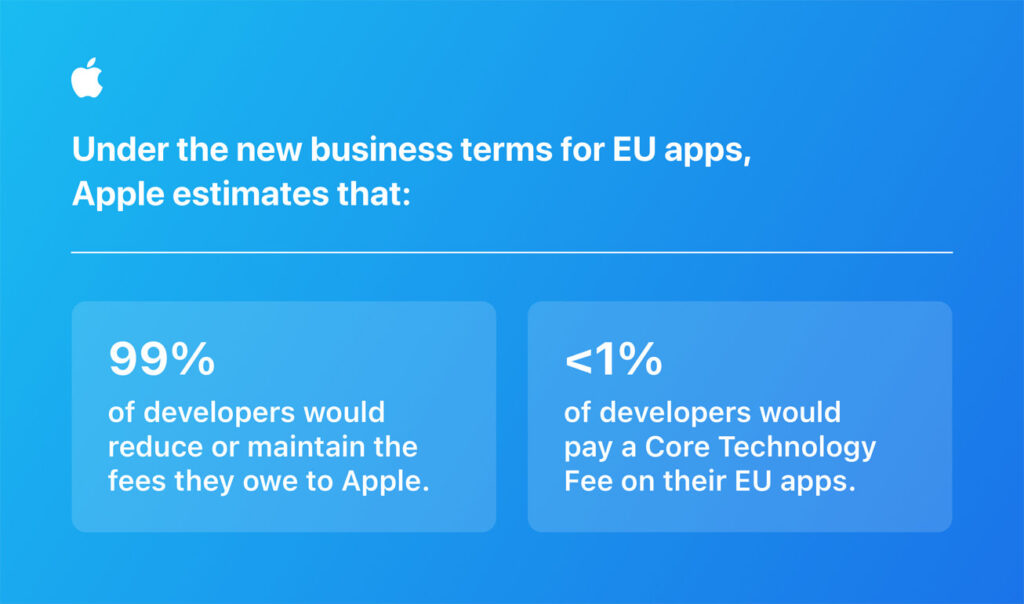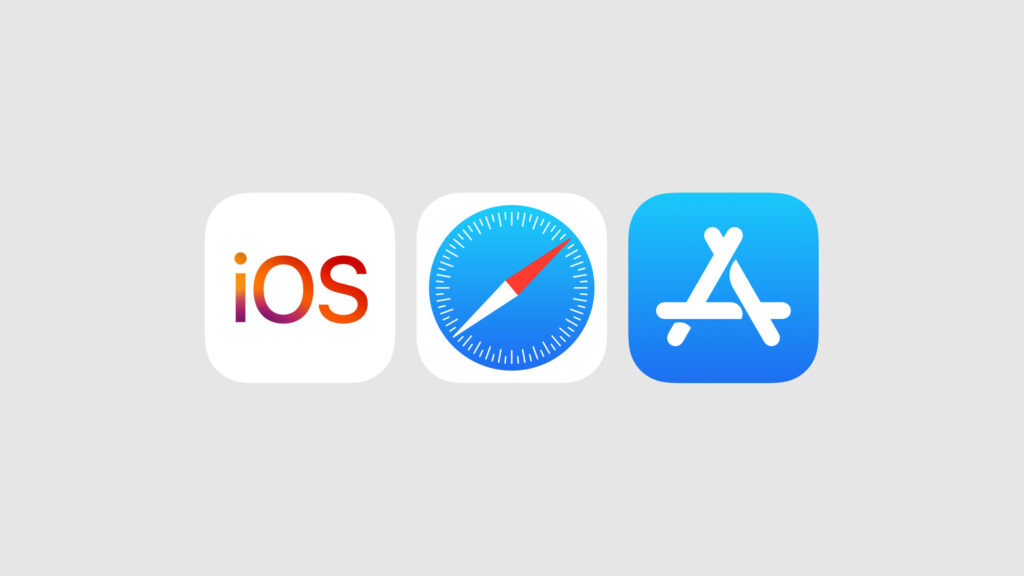Apple must open up its ecosystem. The European Union has decided this, and the Cupertino company has no choice but to comply with the Digital Markets Act, which obliges companies with at least 45 million active users to change their digital platforms to favour a fairer and more competitive market. As already happened with the USB-C port on the iPhone for the diffusion of the universal charger, even in this case, Apple must give in to continue operating in the Old Continent. This is why from 7 March, the deadline for complying with European directives, Apple will implement changes to the iOS operating system, Safari and the App Store, which will only be valid in 27 EU countries because everything will remain unchanged in the rest of the world.
For Apple, there will be more risks for European users
While bowing to the will of the institutions, Apple is not abandoning the tug-of-war, arguing that the new arrangement that opens up the downloading of third-party apps, the use of alternative browsers to Safari and payment options in apps other than the App Store “increase risks to users including malware, fraud, scams, illegal and harmful content, as well as threats to privacy and security”. To ‘reduce but not eliminate’ these risks, the company will ‘introduce new protection measures such as Notarization, an iOS app authentication system, an authorisation for marketplace developers, and information notes on alternative payment options’.

The most eagerly awaited and discussed change concerns the possibility of installing apps on iPhones and iPads outside the App Store. Seen as a primary form of security threat to a device, sideloading marks a momentous change in how Apple’s ecosystem was designed with the arrival of the iPhone in 2007. The ability to download, install and update apps beyond the proprietary store will allow developers to sell apps on their own virtual shop or third-party marketplaces, which any user can set as their default instead of the App Store.
To prevent possible problems, those developing an alternative store must still meet a number of criteria for security, user experience and customer service. The same applies to apps, which will be analysed in terms of accuracy, functionality, privacy and security but not in terms of quality and content, as is the case with the App Store.
As for developers, those who want to distribute an app for iPhone and iPad users will be able to choose whether to make it available on the App Store or other marketplaces. Apple will not charge fees for apps installed through alternative stores nor for alternative payment systems.
Reduced payments and alternative stores
The long-standing diatribe involving Apple and Google with their respective app stores is mainly about payment commissions, which go up to 30% for each transaction of in-app purchases (they stop at 15% if the developer’s turnover is less than $1 million per year). From now on in Europe, anyone launching an app on alternative stores or using alternative payment systems will see the commission for downloading apps from the App Store reduced to 17%.
At the same time, the Core Technology Fee provides for the payment of 50 cents per download on each account after the first million downloads as a fee for using services and technology made in Cupertino. Apple has provided a sort of guide for developers to help them understand which is the most convenient choice for them, anticipating that “more than 99% of developers will reduce or keep their fees to Apple and less than 1% will pay the Core Technology Fee on their apps in the EU”.

Another novelty concerns the possibility of users choosing the default browser, an alternative to Safari, by evaluating the preferred solution in the list that groups the most downloaded browsers during the device setup process. In addition, Apple will also offer developers access to NFC to enable users to make contactless payments even without going through Apple Pay or the Wallet app. Two other announcements concern the world: the introduction of streaming video games, chatbots and other programs within an app, and the new dashboard with extensive app analysis with 50 different reports.



